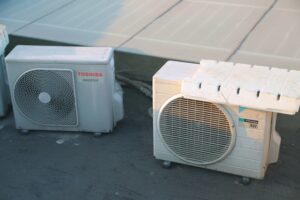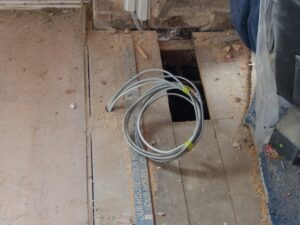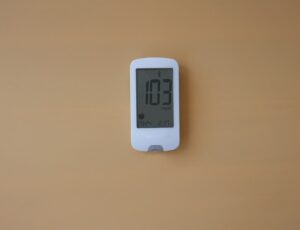Hearing a clicking noise from your gas furnace can be unsettling and raise concerns about safety. A clicking furnace may not be immediately dangerous, but it can signal underlying issues that need attention. Understanding the root cause of the clicking sound will help you determine whether it’s a minor issue or something more serious that could lead to hazards in your home.
As an essential part of your HVAC system, a furnace should operate quietly and efficiently. When it starts making unusual noises, it’s crucial to investigate further. Common causes of furnace clicking include a faulty flame sensor or problems with gas ignition. These issues can disrupt the heating process and even lead to gas leaks or system failures if left unaddressed.
At Excel Mechanical, we prioritize your safety and comfort. Our professional team is dedicated to delivering exceptional quality and great value in HVAC and plumbing services for residential and commercial needs. With our expertise, you can ensure your furnace operates safely and effectively, tailored to your specific requirements and budget.
Understanding the HVAC System and Gas Furnace Components
A well-functioning gas furnace is integral to your HVAC system. Knowing the key components can help you understand how it operates and identify potential issues. The interaction of these parts ensures effective heating and system reliability.
Components of a Gas Furnace
A gas furnace consists of several essential components that work together to generate heat. The heat exchanger converts the combustion gases into warm air. The blower motor circulates this heated air through your home via ductwork.
The pilot light or electronic ignition system ignites the gas, allowing the flame sensor to monitor the flame’s presence. The thermocouple acts as a safety device, shutting off gas flow if the pilot light goes out. Air filters are vital for maintaining clean airflow, while motor bearings reduce friction in the blower motor, enhancing efficiency. Regular inspection of these parts ensures optimal performance.
How the HVAC System Works
Your HVAC system controls indoor temperature by using the gas furnace for heating. When the thermostat signals a need for heat, the furnace activates. It draws in cold air through vents, which passes through the air filters.
The blower motor then moves this air over the heated heat exchanger. Once warmed, the air travels through the ductwork and enters your living spaces. The draft inducer assists in expelling exhaust gases from the combustion process, enhancing safety. Using a trusted service like Excel Mechanical ensures that your system operates reliably and efficiently, meeting your specific heating needs.
Common Furnace Noises and What They Signal
Understanding furnace noises can help you identify potential issues and ensure safe operation. Not all sounds signal danger, but knowing what they mean can assist in timely maintenance or repairs.
Identifying Clicking Noises
A furnace may produce a distinct clicking noise, often indicating issues such as a malfunctioning ignition system or gas valve problems. If these clicks occur before ignition, it could signal a failure to ignite due to a faulty flame sensor or an issue with gas flow. Ignoring this sound could lead to inefficient heating or even safety hazards like gas leaks.
If your furnace makes persistent clicking sounds, it’s wise to have a professional evaluate it.
Popping, Rattling, and Knocking Sounds
Popping, rattling, or knocking noises can also indicate problems with your furnace. A popping sound may arise from expanding or contracting metal parts as the furnace heats, but consistent popping could indicate deeper issues, such as a cracked heat exchanger.
Rattling noises often stem from loose components or debris in the blower assembly.
Knocking may signal issues like airflow restrictions or a malfunctioning blower motor. If you notice any of these sounds, prompt investigation is essential to avoid more significant repairs.
Buzzing and Whistling Indicators
Buzzing and whistling sounds in your furnace can indicate electrical problems or airflow issues. A buzzing noise might suggest electrical arcing, often related to a faulty transformer or capacitor, which can pose a safety risk and should be addressed immediately.
Whistling can indicate that air is being forced through a partially closed vent or a filter that needs replacement. This sound could also signify a gas leak, making it critical to act quickly. For any concerns regarding buzzing or whistling, turn off your furnace and contact a professional.
Diagnosing Clicking Noises in Gas Furnaces
A clicking noise in your gas furnace can indicate several underlying problems. Understanding the causes of these sounds can help you diagnose issues effectively to ensure safe and optimal operation.
Troubleshooting Pilot Light Problems
One of the most common causes of clicking noises is pilot light issues. If the pilot flame is weak or not igniting properly, you may hear repeated clicks as the ignitor tries to light the gas. Check for a dirty or clogged pilot light. A clear flame should be blue with a steady appearance. If the flame is yellow or flickering, a thorough cleaning may be necessary.
Additionally, ensure that there are no drafts affecting the pilot flame. If problems persist, it may be worth examining the thermocouple, which could be malfunctioning. If you need assistance, consider reaching out for professional HVAC services tailored to your needs.
Examining the Blower Fan and Motor Bearings
Another source of clicking sounds could be related to the blower fan and its motor bearings. Listen closely while your furnace is running; if you notice clicks coming from the fan area, it could indicate loose components or worn bearings. Inspect the fan blades for any obstructions or damage, as these can cause abnormal noises. Also, check the motor bearings for wear; if they are not lubricated correctly, this could produce clicking sounds as well. Regular maintenance can help extend the lifespan of these components, ensuring your system operates smoothly.
Inspecting the Furnace Gas Valve and Ignitor
The gas valve and ignitor play a critical role in the furnace operation and may also cause clicking noises. If the gas valve is stuck or malfunctioning, it may not supply gas properly, leading to repeated ignition attempts. This can create a clicking sound as the ignitor fails to light the gas. Make sure to check that the gas supply is adequate and that there are no leaks. If the ignitor itself is damaged or dirty, it may struggle to create a spark, causing similar clicking noises. Proper attention to these parts can prevent potential hazards.
When to Contact an HVAC Professional
Understanding when to call in an HVAC professional is essential for maintaining your furnace’s safety and efficiency. Certain indicators suggest that ongoing issues may require expert intervention.
Reasons to Seek Professional Furnace Repair
If your furnace is making clicking noises, it could signal underlying issues. A common problem is an ignition issue, which might prevent your furnace from operating efficiently and safely. If clicking persists rather than stopping after a cycle, consider contacting a professional.
A cracked heat exchanger presents another serious concern. This issue can lead to gas leaks and carbon monoxide buildup, posing a safety threat. Excel Mechanical specializes in diagnosing these problems. Our HVAC technicians offer thorough inspections and dedicated service to ensure your system operates safely.
Be attentive to any additional symptoms like unusual smells or erratic temperature control. These may indicate the need for urgent attention. Your safety is paramount, and neglecting these signs can lead to costly repairs.
Routine Furnace Maintenance and Inspections
Routine furnace maintenance is vital for optimal performance. Schedule a full inspection at least once a year. During these visits, HVAC professionals can identify signs of wear and potential issues before they escalate.
Regular check-ups include examining ignition systems, checking for gas leaks, and assessing airflow. Preventative maintenance helps minimize unexpected failures and prolongs the life of your furnace.
If you notice any persistent clicking or other symptoms, don’t wait for a breakdown. Excel Mechanical provides exceptional quality in HVAC services for both residential and commercial properties. We tailor our solutions to meet your specific needs and budget, ensuring you receive the best possible system for your situation.
Understanding the Risks of Ignoring Clicking Noises
Ignoring clicking noises from your furnace can lead to severe consequences. These sounds may indicate underlying issues, such as cracked heat exchangers or faulty components, which can pose safety risks and lead to costly repairs.
The Impact of Cracked Heat Exchangers
A cracked heat exchanger can be a serious concern for gas furnaces. This component is responsible for transferring heat from the combustion gases to the air circulated in your home. When a heat exchanger has cracks, toxic gases like carbon monoxide can infiltrate your living space.
Key points:
- Health Risks: Exposure to carbon monoxide can lead to serious health issues or even death. A clicking noise may suggest gas leaks or other malfunctioning parts.
- Increased Repair Costs: Neglecting a cracked heat exchanger may result in more extensive damage or a complete furnace failure, increasing repair expenses significantly.
Regular inspections by professionals ensure your system operates safely and efficiently.
Consequences of Faulty Furnace Components
Faulty components like ignition systems or gas valves can also create clicking noises. An ignition issue often means your furnace is struggling to light up properly. A malfunctioning gas valve can cause irregular gas flow, leading to potentially hazardous conditions.
Important points:
- Unpredictable Performance: Ignoring these issues can result in inconsistent heating or even system shutdowns.
- Safety Concerns: Faulty components can lead to gas leaks, posing a serious fire hazard.
Timely intervention from Excel Mechanical can help prevent these risks, ensuring your HVAC systems meet your safety standards and budget requirements. Regular maintenance and prompt repairs protect your home and maintain comfort. Get in touch to see what we can do for you.




